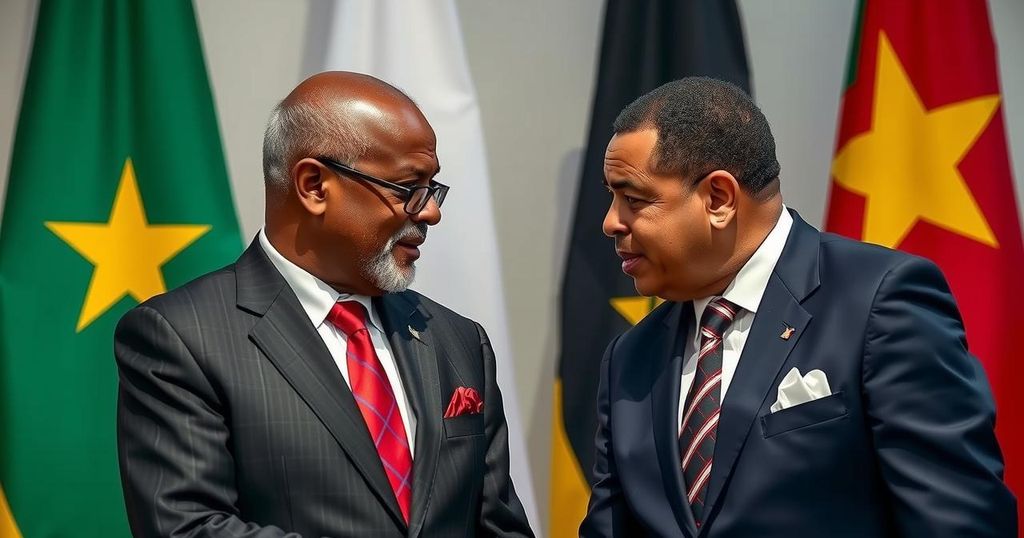Mozambique’s President and Election Rival Agree to Dialogue Amid Protests
Mozambique’s President Filipe Nyusi and election runner-up Venancio Mondlane have agreed to meet for talks to address the violent post-election protests that have affected the nation, resulting in over 30 deaths and significant injuries. Mondlane accepted Nyusi’s invitation to discuss proposals aimed at stabilizing the country, with plans for the talks scheduled for the forthcoming Tuesday.
In Mozambique, President Filipe Nyusi has extended an invitation for dialogue to his electoral contender, Venancio Mondlane, following the country’s tumultuous post-election climate marked by violent protests. Mondlane has accepted this invitation, indicating his intention to propose an agenda for discussions scheduled for Tuesday, aimed at addressing the unrest and its resultant fatalities, amounting to at least 30 casualties. This dialogue is essential as it seeks to curtail the economic disruptions caused by the ongoing protests, which have hampered business operations and triggered significant unrest since the declaration of election results favoring Nyusi’s ruling party.
The context of this situation stems from the presidential elections held in Mozambique on October 9, in which the ruling party’s candidate, Daniel Chapo, was declared the winner amid controversy and allegations of electoral misconduct from the opposition. Following the announcement, protests erupted on October 24, leading to a violent crackdown by security forces and subsequent condemnation from various human rights organizations. With a pressing need for stability, the upcoming negotiations between political leaders aim to facilitate a resolution and restore peace in the nation.
In summary, the initiative for dialogue between President Nyusi and Venancio Mondlane is a crucial step towards alleviating the unrest plaguing Mozambique. Given the violent aftermath of the elections and the significant number of casualties, sustained discussions have the potential to restore order and address the grievances that have incited public outrage. It remains essential for all parties to prioritize human rights and peaceful resolutions throughout this process.
Original Source: www.voanews.com




Post Comment